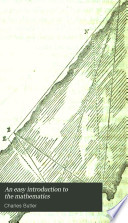 | Charles Butler - Mathematics - 1814 - 528 pages
...powers of its two quantities in the middle term. II. Assume a new equation, by putting some letter equal to the sum of the quotients arising from the division of the given and unknown quantity, alternately, by each other. III. Substitute in the former equation... | |
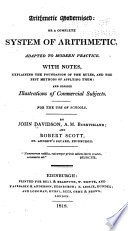 | John Davidson, Robert Scott (writing master) - Arithmetic - 1818 - 190 pages
...are l3,. which I put down. REMARKS. I. The rule for addition is founded on the following axiom : " The sum of two or more numbers is equal to the sum of all the units of those numbers, and the sum of all the tens, and the sum of all the other places, taken... | |
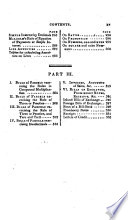 | Thomas Keith - Arithmetic - 1822 - 354 pages
...half their difference, will give the less number. 7. The quotient, arising from tlie division of tbe sum of two, or more, numbers, is equal to the sum of the quotients arising from tha division of the parts, separately, by the iame divisor. „ 8. If any two numbers be separately... | |
 | Thomas Keith - Arithmetic - 1825 - 360 pages
...greater number; and half their sum diminished by half their difference, will give the less number. 7. The quotient, arising from the division of the sum...sum of the quotients arising from the division of the parts, separately, by the same divisor. 8. If any two numbers be separately divided by 9 or 3,... | |
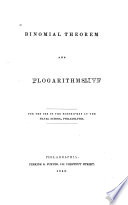 | William Chauvenet - Binomial theorem - 1843 - 102 pages
...raised in order to produce b. • PROPERTIES OP LOGARITHMS IN GENERAL. 60. The logarithm of the product of two or more numbers is equal to the sum of the logarithms of those numbers. For let b, c, d, &c. be any numbers, and a the base of any system of logarithms,... | |
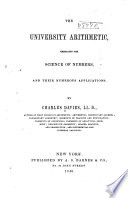 | Charles Davies - Arithmetic - 1846 - 370 pages
...number is not divisible by an even number ; nor is a less number exactly divisible by a greater. 6. The quotient arising from the division of the sum of two or more numbers, by any divisor, is equal to the sum of the quotients which arise from the division of the parts separately.... | |
 | William Vogdes - Arithmetic - 1847 - 324 pages
...measure an odd number, nor a greater a less. Half the sum of any two numbers, increased by half their difference, will give the greater number; and half...number separately, by the same divisor. If any two numbers be separately divided by 9 or 3, and the two remainders multiplied together, and that product... | |
 | Olinthus Gilbert Gregory - 1848 - 572 pages
...(page 50,) r1 x r'' = r1 * '> = N x N, ; and NN, . Ns =r' + 'i + '». Or tfte logarithm of the product of two or more numbers, is equal to the sum of the logaritltms of those numbers; and conversely, the logarithm of the quotient of ttco numbers, is equal... | |
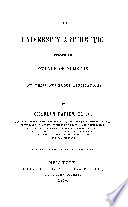 | Charles Davies - Arithmetic - 1850 - 412 pages
...number, will the product be odd or even ? 5. Is an odd number divisible by an even number ? 6. What is the quotient arising from the division of the sum of two or more numbers by any divisor equal to ? 7. When is a number exactly divisible by 2 ? When by 4 ? 8., If the last... | |
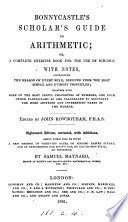 | John Bonnycastle - 1851 - 314 pages
...greater number ; and half their sum diminished by half their difference, will give the less number. 2. The quotient, arising from the division of the sum...sum of the quotients arising from the division of the parts, separately, by the same divisor. the question ; then, if the excess of nines in this result... | |
| |